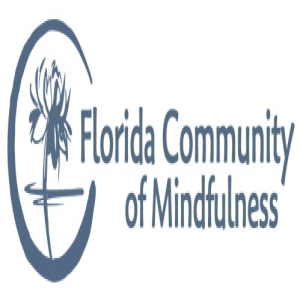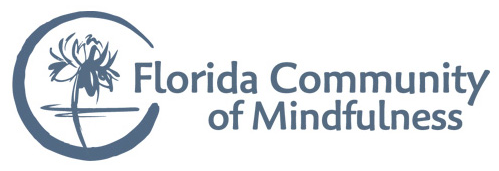Episodes

Friday Nov 08, 2019
Friday Nov 08, 2019
Part 1: The Path of Mindful Living
"Healing, Transformation, Awakening: A Study and Practice Guide for the Florida Community of Mindfulness" sets forth three stages of the path followed by the Florida Community of Mindfulness. The first is called the Mindful Living Path, the second the Dharma Path, and the third the Wisdom Path. Please visit the Teachings section of our website to view a more comprehensive presentation of these paths, and the teachings and practices associated with them.
The first two paths, Mindful Living and Dharma, are the foundation teachings and practices for our community’s transformative journey. All member of our community - those who’ve been practicing many years, and non-members who practice with us - are undertaking a comprehensive experience of these two paths together in a "Path of Awakening" that begins in October 2013 and continues through May 2014. For newer members and non-members, this is an opportunity to approach these paths of study and practice with a clear structure to support and guide yourself. For experienced practitioners, this is an opportunity to experientially review these core foundation practices to solidify and strengthen your base. The goal for all is to develop a life grounded in clarity, happiness and meaning.
Dharma talks during the first half of the Path of Awakening (2013) will focus on mindful living and psychological wholeness, and will be added to the list below. The second half will focus on developing a life of altruistic purpose, intelligence, and compassion.

Wednesday Nov 06, 2019
Patrul Rinpoche: Advice from me to myself (4 of 4)
Wednesday Nov 06, 2019
Wednesday Nov 06, 2019
Patrul Rinpoche was one of the greatest and most beloved Tibetan teachers of the nineteenth century. In this recording, Dharma teacher Fred Eppsteiner teaches from one of Patrul Rinpoche's great writings, Advice from me to myself.
Much gratitude to Constance Wilkinson for her skillful translation of the text from Tibetan to English, which can be accessed through this link.

Wednesday Nov 06, 2019
Patrul Rinpoche: Advice from me to myself (3 of 4)
Wednesday Nov 06, 2019
Wednesday Nov 06, 2019
Patrul Rinpoche was one of the greatest and most beloved Tibetan teachers of the nineteenth century. In this recording, Dharma teacher Fred Eppsteiner teaches from one of Patrul Rinpoche's great writings, Advice from me to myself.
Much gratitude to Constance Wilkinson for her skillful translation of the text from Tibetan to English, which can be accessed through this link.

Wednesday Nov 06, 2019
Patrul Rinpoche: Advice from me to myself (2 of 4)
Wednesday Nov 06, 2019
Wednesday Nov 06, 2019
Patrul Rinpoche was one of the greatest and most beloved Tibetan teachers of the nineteenth century. In this recording, Dharma teacher Fred Eppsteiner teaches from one of Patrul Rinpoche's great writings, Advice from me to myself.
Much gratitude to Constance Wilkinson for her skillful translation of the text from Tibetan to English, which can be accessed through this link.

Wednesday Nov 06, 2019
Patrul Rinpoche: Advice from me to myself (1 of 4)
Wednesday Nov 06, 2019
Wednesday Nov 06, 2019
Patrul Rinpoche was one of the greatest and most beloved Tibetan teachers of the nineteenth century. In this recording, Dharma teacher Fred Eppsteiner teaches from one of Patrul Rinpoche's great writings, Advice from me to myself.
Much gratitude to Constance Wilkinson for her skillful translation of the text from Tibetan to English, which can be accessed through this link.

Wednesday Nov 06, 2019
Wednesday Nov 06, 2019
Although Dharma teaching makes it clear that personal suffering is not a distraction to practice but is the heart of the practice itself, many practitioners still have a difficult time directly opening to and experiencing their emotional afflictions. Although our teachers instruct us to embrace suffering as the direct path to healing and transformation, we often mindlessly do the opposite of what helps and engage in long-standing habit patterns that make painful situations more so. Rather than opening and embracing the wounded parts of ourselves so that healing and transformation become possible, we harden and shut down. Even though we are practicing diligently, we become discouraged because deep down we aren’t feeling better. Even more importantly, we lose our capacity to manifest understanding and compassion with those we love.
This three day retreat was offered for students wanting to make a commitment to their spiritual development by looking deeply into the Four Noble Truths as a guide to transforming suffering. It offered participants a personal, practical and targeted approach to working with their suffering as an integral part of daily practice.

Wednesday Nov 06, 2019
Wednesday Nov 06, 2019
Although Dharma teaching makes it clear that personal suffering is not a distraction to practice but is the heart of the practice itself, many practitioners still have a difficult time directly opening to and experiencing their emotional afflictions. Although our teachers instruct us to embrace suffering as the direct path to healing and transformation, we often mindlessly do the opposite of what helps and engage in long-standing habit patterns that make painful situations more so. Rather than opening and embracing the wounded parts of ourselves so that healing and transformation become possible, we harden and shut down. Even though we are practicing diligently, we become discouraged because deep down we aren’t feeling better. Even more importantly, we lose our capacity to manifest understanding and compassion with those we love.
This three day retreat was offered for students wanting to make a commitment to their spiritual development by looking deeply into the Four Noble Truths as a guide to transforming suffering. It offered participants a personal, practical and targeted approach to working with their suffering as an integral part of daily practice.

Wednesday Nov 06, 2019
Wednesday Nov 06, 2019
Although Dharma teaching makes it clear that personal suffering is not a distraction to practice but is the heart of the practice itself, many practitioners still have a difficult time directly opening to and experiencing their emotional afflictions. Although our teachers instruct us to embrace suffering as the direct path to healing and transformation, we often mindlessly do the opposite of what helps and engage in long-standing habit patterns that make painful situations more so. Rather than opening and embracing the wounded parts of ourselves so that healing and transformation become possible, we harden and shut down. Even though we are practicing diligently, we become discouraged because deep down we aren’t feeling better. Even more importantly, we lose our capacity to manifest understanding and compassion with those we love.
This three day retreat was offered for students wanting to make a commitment to their spiritual development by looking deeply into the Four Noble Truths as a guide to transforming suffering. It offered participants a personal, practical and targeted approach to working with their suffering as an integral part of daily practice.

Wednesday Nov 06, 2019
Pith Teachings of Thich Nhat Hanh: I have Enough
Wednesday Nov 06, 2019
Wednesday Nov 06, 2019
The much loved and respected Zen master Thich Nhat Hanh (called Thay by his students) has led a remarkable life, from his work for peace and relief for the suffering during the Vietnam war, to his worldwide teaching today on the art of mindful living. His key teaching is mindfulness, learning to live in the present moment instead of in the past or future.
Thay teaches that if we can learn to smile, we can experience joy; life's worries will naturally diminish. If we value ourselves highly we can learn how to value society. If we find peace in our own hearts, the world will become a peaceful place.
Many, Many of Thay's pith teachings and his calligraphy were compiled by the European Institute of Applied Buddhism and the University of Hong Kong in the book Calligraphic Meditation - The Mindful Art of Thich Nhat Hanh, in 2010. Dharma Teacher Fred Eppsteiner presented a number of these teachings to the Florida Community of Mindfulness Sanghas in the spring and summer of 2012.

Wednesday Nov 06, 2019
Pith Teachings of Thich Nhat Hanh: Peace is Every Step
Wednesday Nov 06, 2019
Wednesday Nov 06, 2019
The much loved and respected Zen master Thich Nhat Hanh (called Thay by his students) has led a remarkable life, from his work for peace and relief for the suffering during the Vietnam war, to his worldwide teaching today on the art of mindful living. His key teaching is mindfulness, learning to live in the present moment instead of in the past or future.
Thay teaches that if we can learn to smile, we can experience joy; life's worries will naturally diminish. If we value ourselves highly we can learn how to value society. If we find peace in our own hearts, the world will become a peaceful place.
Many, Many of Thay's pith teachings and his calligraphy were compiled by the European Institute of Applied Buddhism and the University of Hong Kong in the book Calligraphic Meditation - The Mindful Art of Thich Nhat Hanh, in 2010. Dharma Teacher Fred Eppsteiner presented a number of these teachings to the Florida Community of Mindfulness Sanghas in the spring and summer of 2012.

